It is redundant to the point of comedy to say 2024 was a difficult year to be a game developer (or a human being in general, but right now, we’re talking about workers in an industry undergoing such turmoil). With layoffs, drought-like funding environments, and every other nasty thing implied by the “changing market conditions” we see referenced in the layoff announcements, it’s a minor miracle that games still get made, still launch, and still make players smile (or think, or feel something).
It’s not especially easy to make games—or game-making tools, or strong, inclusive workplace cultures—in the best of times, let alone now.
These are a few of the developers we’d like to send some kudos, for working through the current reality and making some kind of positive impact on the industry.
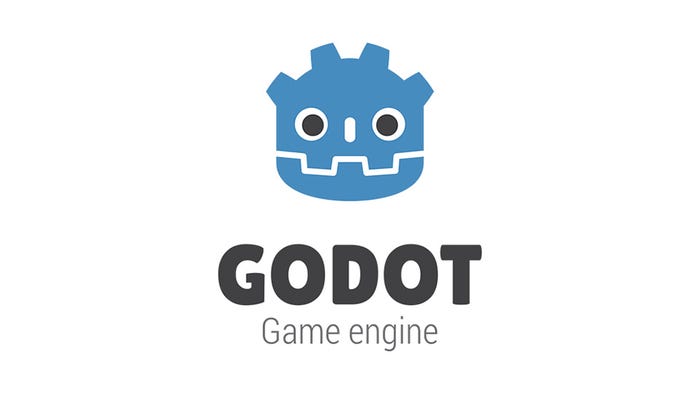
Image via Godot.
Godot, the vanguard of a big-box game engine revolution
Godot isn’t just one company. The Godot Foundation shepherds the engine, W4 Games is the corporate entity run by several Foundation board members that makes key contributions to the engine, and its open-source userbase has the collective power of a large workforce at commercial entities like Epic Games and Unity. But however you compartmentalize the engine’s architects, its stewards were among the standout developers of 2024.
This was a game engine made for a moment like the Unity Runtime Fee debacle of 2023. It wasn’t a competitor fiercely biting at Unity’s heels, it was another toolmaker quietly working in the background to serve its existing audience. As Rémi Verschelde and Juan Linietsky told us at Gamescom 2024, they were never excited at the idea of a mass Unity exodus, worried both that Godot wouldn’t be ready for primetime and that a flood of new users would expect it to behave like the tools they’d been trained on.
The hard work they and their peers put into improving the engine paid off. Developers found Godot so flexible they could begin porting games made in Unity to the new engine, and frustrated new users found a network of independent contributors who could walk them through the changes in the engine—or help create features that would bring parity for the two platforms.
Godot’s success validated the idea that no one company guards the gates to the world of game development. If it or any other game engine fails its users, developers can breathe a little easier knowing somewhere out there will be another tool just as capable for their needs. —Bryant Francis, senior editor
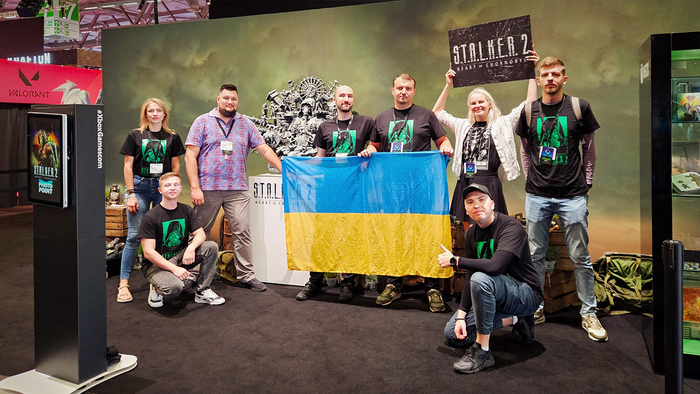
Image via GSC Game World (via X)
GSC Game World, launching a major game from a warzone
Bringing a video game to market under normal circumstances is considered nothing short of a miracle. So, how do you describe the achievement of Ukrainian studio GSC Game World, which developed and launched massive open-world survival shooter Stalker 2: Heart of Chornobyl in the midst of a warzone.
The team has been working in unimaginable circumstances since Russia invaded Ukraine in 2022, marking a significant escalation in the war that began in 2014. At the time, GSC was one of many Ukrainian studios to express defiance but acknowledged “our work will be impacted and our lives can be destroyed.” Stalker 2 has since launched and sold over 1 million copies in two days. GSC is working hard to support the title by addressing a number of issues–releasing three notable patches in the space of a week. Meanwhile, the fighting continues.
“The war is not over, and the enemy is not stopping,” reads a statement on the GSC website. “Right now our families and friends are either trying to find shelter from bombings or are actively assisting those who has already suffered from the occupants. We need all the help we can get. Through pain, death, war, fear and inhuman cruelty, Ukraine will persevere. As it always does!” —Chris Kerr, news editor
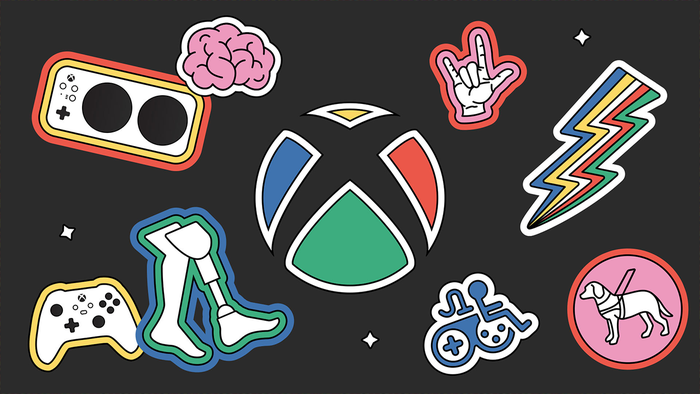
Image via Xbox Wire
Microsoft Gaming Accessibility Team, a stalwart champion of accessible play
The Microsoft Gaming Accessibility Team continues to fly the flag for inclusivity and accessibility within the game industry. The division has released a bounty of accessibility hardware and software over the years, and 2024 saw it continue that trend by unveiling the Xbox Adaptive Joystick to help those with limited mobility enjoy video games in a way that works for them.
It also debuted additional accessibility devices and accessories, including adaptive thumbtacks that can be 3D printed at home, and two customizable wireless controllers created in tandem with ‘Designed for Xbox’ partners ByoWave and 8BitDo. The company’s ongoing commitment to accessible design is well worth championing, not least because Microsoft remains focused on developing that technology alongside the communities it serves.
Discussing that philosophy in a conversation with Game Developer earlier this year, Xbox senior accessibility product manager Kaitlyn Jones said the company believes a “rising tide floats all boats,” which is why it doesn’t view accessible design as a competitive undertaking. “We just want anyone to play regardless of the title or platform,” said Jones. Microsoft isn’t alone in advocating for accessibility. There are numerous individuals across the industry who help steer and shape the conversation, but it remains vital that a company with the visibility and resources of Microsoft continues to amplify the message. In a year dominated by hardship, there’s some hope in that. —Chris Kerr, news editor
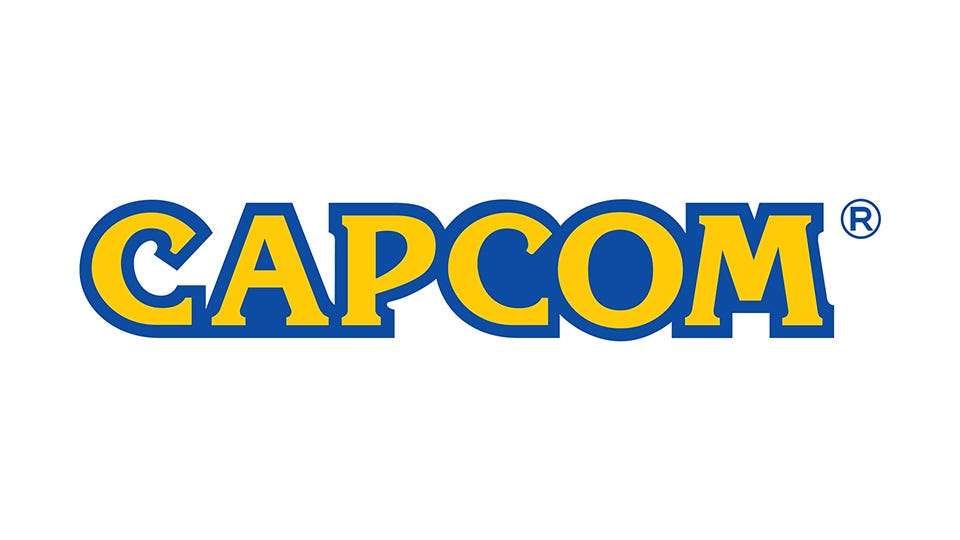
Image via Capcom.
Capcom, the model for sustainable triple-A development
On paper, Capcom should have been among the many companies laying people off in 2024. It has over 3,000 employees and a business model led by premium triple-A games. Surely, the slowing growth of player spending that other companies have blamed on their business downturns on would have left it vulnerable for a body blow, right?
Wrong. In March, the company announced it was raising its base starting salary and giving existing employees an average of 5 percent raises. And in May it reported its seventh consecutive year of record-high profits, and its next year is looking just as strong. Capcom may as well be asking “Downturn? What downturn?” while it pursues the same multipronged business model that’s served it well for much of its lifetime.
It didn’t need billion-dollar franchises like Grand Theft Auto or Roblox to hit those numbers, either. This year, Capcom released Dragon’s Dogma 2, Monster Hunter Stories, and Ace Attorney Anthology. Its portfolio juggles a blend of series with cult followings, fan-favorite franchises, and older titles it can remake or re-release in “HD Editions.” Companies with similar profiles have stumbled, but it’s stayed sustainable.
At Gamescom 2024, Monster Hunter Wilds game director Yuya Tokuda, executive producer Ryozo Tsujimoto, and art director Kaname Fujioka explained to us that its sustainability has to do with a tight culture of communication and the shared use of RE Engine across several series. These processes have made the development of Wilds (which is gone on for almost six years!) to be a modest gamble for the company, instead of a teetering financial tower ready to collapse.
Capcom is not a company without stains on its record—the closure of Capcom Vancouver in 2018 shows its management can make missteps that cost developers their jobs. You also can’t just copy and paste its operations onto another company—making it to this point in 2024 took years of work. But its success should be a shining light for developers who want to make ambitious games on ambitious budgets. —Bryant Francis, senior editor
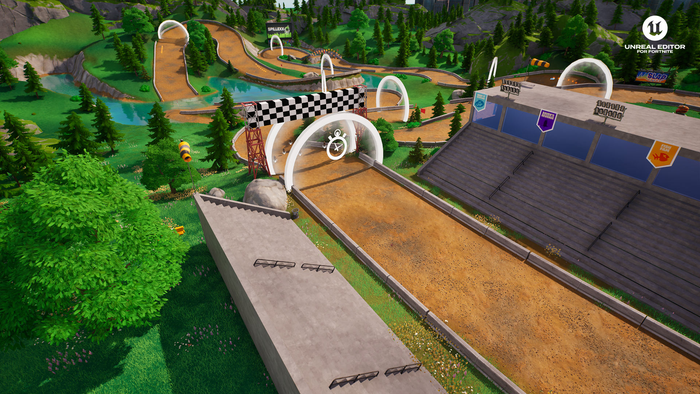
via Epic Games
The developers working on UGC platforms
The User Generated Content (UGC) development community made a huge impact in 2024, one we sometimes struggle to discuss on a site like game developer. There are many who deserve praise, but to describe their impact, we must stare the flaws of this demographic dead in the eye.
When industry players sing the praises of UGC platforms they struggle to explain why they’re so popular. For the most part Roblox Corporation has soaked up all the attention we’d normally heap on developers. It’d be like if we praised the App Store instead of Ustwo Games for the making of Monument Valley. There is some difference. Players move more fluidly between games in the Roblox ecosystem than they do on other app stores, but that fluidity leaves many developers making great games on the service on the sidelines.
Praising this wide group of workers comes with complications. A minority of them are under the age of 18, caught in the Robux ecosystem that sells itself both as “baby’s first game project” and “the ultimate way to self-monetize.” People Make Games and other reporters have documented the stress these young folks have been through, and though the company promises ever-improving protections, they are still a part of the system powering its profits. Some might even say they’re exploited.
And then we must turn our gaze further up the age range, because many successful developers on these platforms are the ones doing the exploiting. Some take advantage of young folks to underpay them for popular games; others steal their suddenly successful ideas and clone titles, blurring the line between inspiration and theft. And an absolutely vile lot of them are the ones behind the horrendous experiences like “Escape to Epstein Island” and “Diddy Party” spotted by Hindenburg research in its blistering report explaining why it is shorting Roblox Corporation. It is the corporation’s responsibility to moderate these games, but damnit, if you make one of these games, you should be permanently cut off from access to the internet.
Without these developers, the dream of UGC, the metaverse, or whatever you call it, doesn’t exist. As Roblox, UEFN, and other platforms enjoyed notable growth in 2024, we’d like to recognize the positive—and where needed, negative—impact these workers made. With enough effort, the work of the former can outshine the latter. But the best time to make that happen is now.
—Bryant Francis, senior editor
Thank you for celebrating the year’s amazing devs with us! This article is one of many 2024 reflections hitting GameDeveloper.com this month, with more to come! For even more thoughts and insights on the best of 2024, check out our Game Developer’s 2024 Wrap-Up keyword to catch up on all our End of Year content.